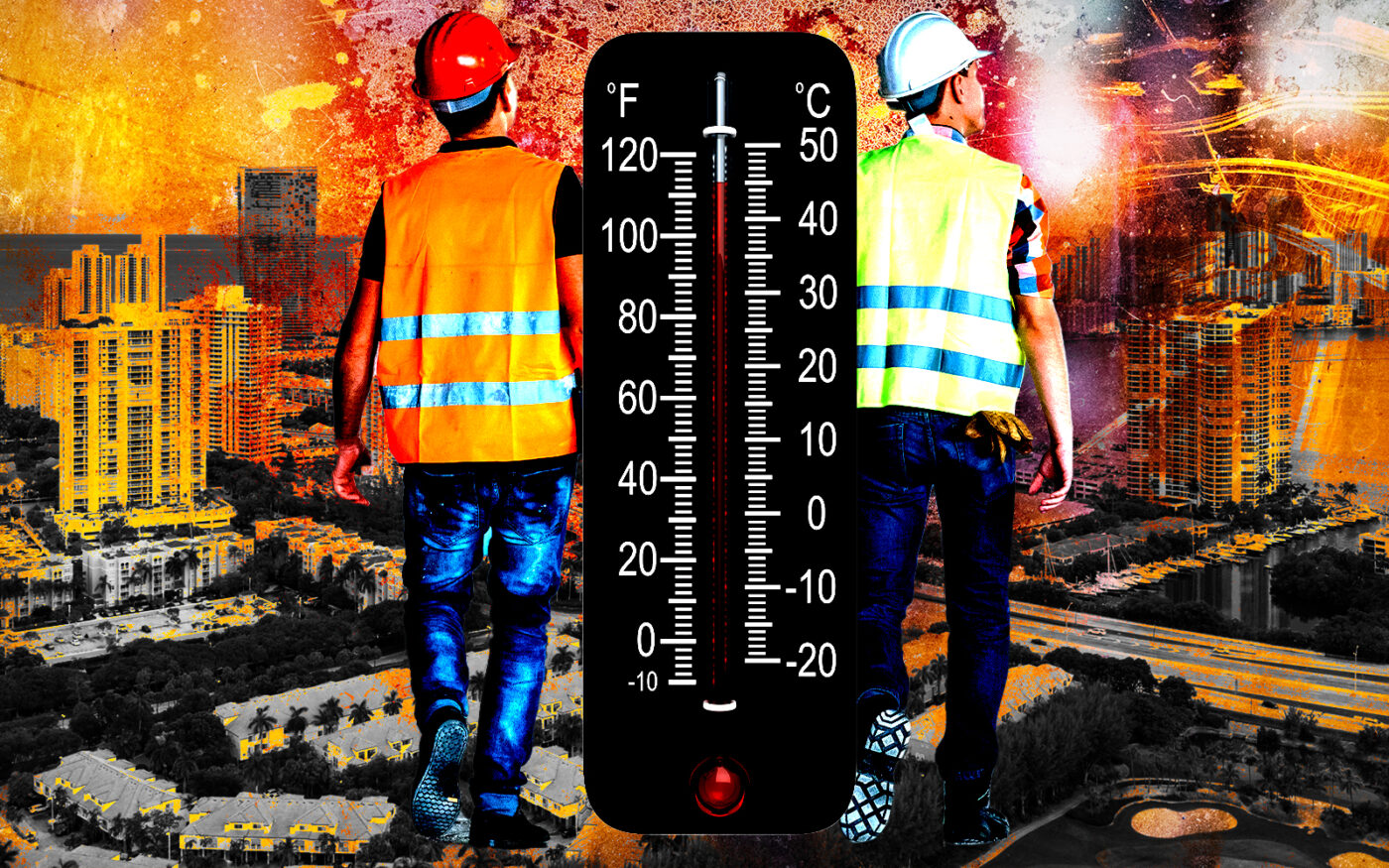Miami-Dade County commissioners delayed a final vote on a proposed hot weather standard for employers in construction and agriculture, aimed at protecting outdoor workers from heat-related illnesses.
County commissioners on Tuesday deferred a vote on the standard until their second regular meeting in March, amid concern that the county standard would be vulnerable to litigation or possible preemption by state law. The date of the commission’s second meeting in March hasn’t been set, according to the county’s website.
The vote to defer came near the end of Miami-Dade’s hottest year on record, according to research by the Rosenstiel School at the University of Miami, which was cited in the proposed ordinance to create new hot weather protections for outdoor workers.
“I cannot get behind it in its current form,” Anthony Rodriguez, vice chairman of the Miami-Dade County Commission, said of the proposed set of rules to protect outdoor workers in construction and agriculture. “This is a topic that should be regulated by the state, not at the local level.”
Several commissioners questioned the fairness of applying the proposed hot weather standard only to employers in construction and farming. “It’s focused on two industries,” said commissioner Juan Carlos Bermudez. “That concerns me a bit.”
Commissioner Raquel Regalado said the county should test the proposed hot weather standard in a pilot program involving county subcontractors.
And commissioner Danielle Cohen Higgins said the county itself should test the heat standard on its own employees before applying it to the private sector. “We have people that work in parks and work outside all the time,” she said.
Under the proposed heat standard for workers, when the outdoor heat index tops 95 degrees Fahrenheit, mandated procedures would include reminding construction and agricultural employees at least once every two hours to drink water throughout the day, ensuring that every employee takes a 10-minute break in a shaded area after every two hours spent working outside, and allowing any employee showing signs of heat illness to stop working and spend at least 15 minutes in a shaded recovery area.
The proposed ordinance also would require affected employers to inform workers and post notices in English, Spanish, and Creole, about outdoor workers’ rights under the ordinance. Fines against employers would range up to $1,000 per violation for repeated failures to properly inform workers of their rights, or to provide them drinking water or shade, and up to $2,000 per violation for repeated retaliation against employees who come forward to seek relief under the ordinance. In addition, companies with county contracts could face debarment for violations of the ordinance.
But if enacted, the proposed Miami-Dade ordinance could face a lawsuit from the construction industry. In 2008, the Florida East Coast chapter of construction trade group Associated Builders and Contractors (ABC) successfully sued Miami-Dade to prevent the county from enforcing a local ordinance regulating the use of tower cranes on construction sites.
Peter Dyga, president of the Florida East Coast chapter of ABC, said in July that ABC won its lawsuit because the Occupational Health and Safety Administration, or OSHA, already had federal tower crane regulations in place when Miami-Dade passed its county crane ordinance.
“We’re not happy with the Miami-Dade [heat safety] ordinance, quite frankly. But we haven’t decided whether to sue them yet, like we did on the crane ordinance,” he said.
OSHA does not have a specific standard for protecting outdoor workers from hot weather hazards. The federal agency enforces a “general duty” among employers to protect workers from hazards including heat.
The White House announced on July 27 that, at President Joe Biden’s request, the U.S. Department of Labor will begin issuing a new heat hazard alert. The department will also increase enforcement of heat safety violations by conducting more inspections in high-risk industries, including construction.
